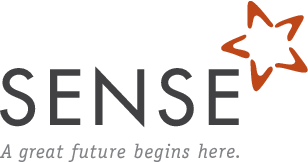Frequently Asked Questions
What is a Charter School?
A charter school is a public school that is nonsectarian and nonreligious and operates under a contract or charter. Under Indiana Code, charter schools are established to serve the different learning styles and needs of public school students, to offer public school students appropriate and innovative choices, to afford varied opportunities for professional educators, to allow freedom and flexibility in exchange for exceptional levels of accountability, and to provide parents, students, community members, and local entities with an expanded opportunity for involvement in the public school system.
Charter schools got their name from the charter, or contract, the organizers of the school sign with an authorizer, also known as a sponsor. The sponsors are designated by state law and are responsible for school oversight and ensuring that the charter school complies with applicable state and federal laws and the terms of the charter.
Like traditional public schools, charter public schools must have open enrollment policies and cannot discriminate based on disability, race, color, gender, national origin, religion, or ancestry.
SENSE is a community based school. What does that mean?
SENSE Charter School was started by a grassroots effort of neighbors. It is at the heart of our mission to be an elementary school for children in the southeast. We believe that by building a strong neighborhood school, we are empowering the community. At SENSE, we believe that in order to reach a student we must engage the whole family. Check out our Family Resources page to learn more about how we connect with each family and the neighborhood.
Do charter schools have to make Adequate Yearly Progress (AYP) under No Child Left Behind?
Yes. Like all public schools, charter schools must make AYP. A charter school’s sponsor is responsible for ensuring that the charter school meets AYP accountability requirements. As part of its assurances for federal stimulus funds, the state must make available the number and percentage of charter schools identified as schools that "made progress," which means the charter school shows gains on ISTEP+ in the overall and all student subcategories that are greater than the statewide gains. For more information about AYP and Charter Schools that made progress, visit www.doe.in.gov/ayp/.
Do charter school students have to take the ISTEP+ exam?
Yes. Indiana law states that charter school students must take the ISTEP+ exam. In addition, a charter school’s curriculum must meet Indiana’s academic standards.
How are charter schools different than other public schools?
Charter public schools were created to provide innovative and creative educational choices for students and their parents. As such, they are exempt from many state and school district regulations and tend to have more autonomy than a traditional public school. In Indiana, an individual charter school is considered to be its own local educational agency (LEA), meaning it is treated as an autonomous entity that is independent from a school district. For some purposes, including funding purposes and other purposes specified in legislation, charter schools are treated as their own school corporations.
Although charter public schools are exempt from some state and district regulations, they are held to high levels of accountability. In addition to meeting state and federal accountability requirements, charter schools must also meet the requirements set out in their charter and agreed to by their sponsor. A sponsor may revoke a school’s charter at any time if the school is not producing positive results or fulfilling its charter.
How do I enroll my student in SENSE Charter School?
In the spring of each school year, enrollment opens for new families. Families can download the application online or come to SENSE Charter School to fill out all of the forms. Like traditional public schools, charter public schools must have open enrollment policies and cannot discriminate based on disability, race, color, gender, national origin, religion, or ancestry.
What happens if the school is at capacity?
In a case in which a charter school receives applications for admission that exceed its capacity, the charter school must institute a lottery process in which each applicant is given an equal chance of admission. However, such a charter school may limit new admissions to ensure that a student who attends the charter school during a school year may continue to attend the school in subsequent years, and that siblings of such a student may attend the charter school.
What will SENSE Charter School provide for my child?
SENSE Charter School will provide an enriching experience for your child. At SENSE, we believe that with the right support, every child can learn. SENSE teachers get to know their students so they can provide individualized attention and care. Whether your child needs to be challenged or given extra support, we have the tools in place to meet their needs. We believe in teaching the whole child. We care for students and families socially, emotionally, and academically. At SENSE, your child will be entrenched in exciting learning environments and a curriculum that goes above and beyond Indiana Academic Standards.
How big are the class sizes at SENSE Charter School?
At SENSE, we are determined to meet the needs of every child. In order to do that, we limit our classrooms to 22 students.
Are the arts important to SENSE Charter School?
Yes, we believe the arts are a crucial aspect of student learning. At SENSE, our students take visual art, music, physical education, and 21st Century Skills. Through studying brain-based research, we have learned that the arts promote neural development in the elementary school years. Each of these different content areas help nurture individual learning styles and promote pathways to learning.

